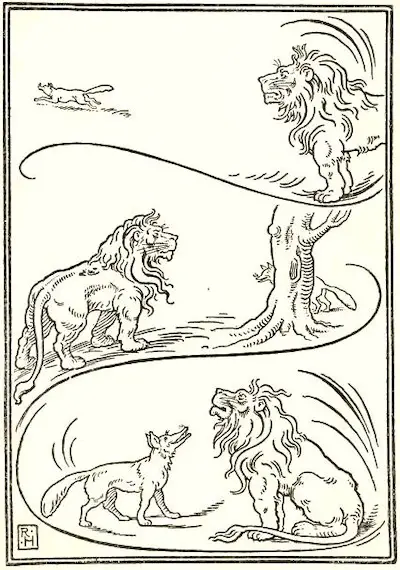The proverbial saying ‘familiarity breeds contempt’ express the idea that a close long-term relationship with a person or situation brings about feelings of boredom or lack of respect.
Familiarity breeds contempt
What's the meaning of the phrase 'Familiarity breeds contempt'?
What's the origin of the phrase 'Familiarity breeds contempt'?
The 6th century BCE storyteller Aesop is often credited with the coining of the phrase ‘familiarity breeds contempt’. That assumption needs a little picking apart though. Firstly, no original writings of Aesop survive and indeed he may not have been a real person but merely the nominal author of a collection of tales that changed over many centuries.
Where the attribute comes from is the moral of the tale The Fox and the Lion, a translation of which goes like this:
When first the Fox saw the Lion he was terribly frightened, and ran away and hid himself in the wood. Next time however he came near the King of Beasts he stopped at a safe distance and watched him pass by. The third time they came near one another the Fox went straight up to the Lion and passed the time of day with him, asking him how his family were, and when he should have the pleasure of seeing him again; then turning his tail, he parted from the Lion without much ceremony.
It may be that the person who first used the expression ‘familiarity breeds contempt’ in English was influenced by the moral of Aesop’s story. Likewise, he, she or it may not have been. Either way, there’s no version of the proverb in Aesop’s story and there’s no real reason to view him as the originator of it.
To find the real origin we need to move forward a few centuries and across to France. The OED records a Middle French printed record from circa 1340 which reads:
Trop grande familiarité engendre mesprisement
[Too much familiarity breeds contempt]
This is first found in English in the biblical scholar Richard Taverner’s Middle English work The Second Book, Garden of Wysdome, 1539:
His speciall frendes counsailled him to beware, least his overmuche familiaritie might breade him contempte.
The history of “Familiarity breeds contempt” in printed materials
Trend of familiarity breeds contempt in printed material over time
Related phrases and meanings
Browse more Phrases
About the Author

Phrases & Meanings
A-Z
A B C D E F G H I J K L M N O P Q R S T UV W XYZ
Categories
American Animals Australian Bible Body Colour Conflict Death Devil Dogs Emotions Euphemism Family Fashion Food French Horses ‘Jack’ Luck Money Military Music Names Nature Nautical Numbers Politics Religion Shakespeare Stupidity Entertainment Weather Women Work
How did we do?
Have you spotted something that needs updated on this page? We review all feedback we receive to ensure that we provide the most accurate and up to date information on phrases.
